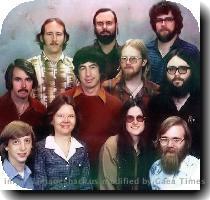‘Nobel of computing’ goes to Microsoft researcher who helped build arguably world’s first PC
By Jordan Robertson, APTuesday, March 9, 2010
‘Nobel of computing’ goes to early PC designer
SAN JOSE, Calif. — A Microsoft Corp. researcher won the $250,000 Turing Award, one of technology’s most coveted prizes, on Tuesday for his work helping design and build what is widely considered the first modern personal computer.
While at Xerox Corp.’s famed Palo Alto Research Center, or PARC, in the 1970s, Charles Thacker led the hardware development for the Alto, which featured innovative display and other technologies that helped inspire future generations of computers.
Thacker, 67, was also co-inventor of the Ethernet networking technology for connecting computers, which is still widely used.
Thacker said he would probably donate the money to his alma mater, the University of California, Berkeley.
“I was flabbergasted,” he said in an interview Tuesday. “I frankly never expected to get the award, because it wasn’t given to people like me. Most of the people who have gotten the Turing award in the past few years are software people or theoreticians. There are scant few people who have actually built some hardware.”
Other recent winners include Internet pioneers Vint Cerf and Robert Kahn, and Doug Engelbart, the inventor of the computer mouse.
The Turing Award is funded by Google Inc. and Intel Corp. It is named for the mathematician Alan Turing and is administered by Association for Computing Machinery.
The association’s president, Wendy Hall, said that Thacker is “one of the most distinguished computer systems engineers in the history of the field” and that his innovations have “profoundly affected the course of modern computing.”
Tags: California, Computer Hardware, Computing And Information Technology, Consumer Electronics, North America, San Jose, United States


